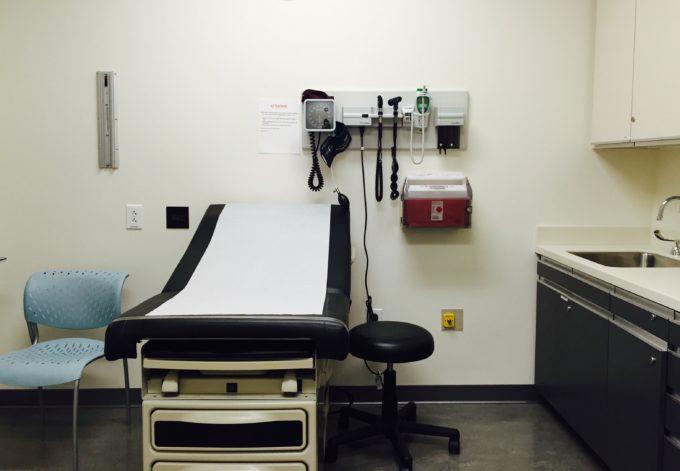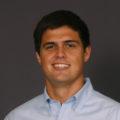
Get the latest articles delivered directly to your inbox!
Our Contributors
Class of 2022
Kyle Duke
Austin Foster
Charlotte Leblang
Ross Lordo
Class of 2021
Dory Askins
Connor Brunson
Keiko Cooley
Mason Jackson
Class of 2020
Megan Angermayer
Carrie Bailes
Leanne Brechtel
Hope Conrad
Alexis del Vecchio
Brantley Dick
Scott Farley
Irina Geiculescu
Alex Hartman
Zegilor Laney
Julia Moss
Josh Schammel
Raychel Simpson
Teodora Stoikov
Anna Tarasidis
Class of 2019
Michael Alexander
Caitlin Li
Ben Snyder
Class of 2018
Alyssa Adkins
Tee Griscom
Stephen Hudson
Eleasa Hulon
Hannah Kline
Andrew Lee
Noah Smith
Crystal Sosa
Jeremiah White
Jessica Williams
Class of 2017
Carly Atwood
Laura Cook
Ben DeMarco
Rachel Nelson
Megan Epperson
Rachel Heidt
Tori Seigler
Class of 2016
Shea Ray
Matt Eisenstat
Eric Fulmer
Geevan George
Maglin Halsey
Jennifer Reinovsky
Kyle Townsend
Join USCSOMG students on their journeys to becoming exceptional physician leaders.

My First Rotation: Family Medicine
Shortly after finishing Step 1, I found myself mentally and physically drained. I had spent the past five weeks sitting in a chair the majority of each day trying to put two year’s worth of information into my head. Having finally taken “the biggest test of my life,” all I wanted to do was sleep and never open a book again. However, I was required to begin my first rotation the following Monday in Family Medicine. I had the preconceived notion that my clinical hours would not be too difficult, as I envisioned family practitioners almost as “mediators,” who treated general problems and sent the majority of complicated conditions elsewhere to specialists. I quickly found out that what I had heard and thought was wrong.
I spent four out of my six weeks at a community practice outside of the City of Greenville. The last two weeks were a combination of inpatient hospital work and hours spent at the main residency/teaching clinic behind the main hospital. I thought my first few days in the outpatient setting would be relaxed, as I would mostly shadow the physicians I was underneath; however, that first morning I was asked to see a patient on my own. I quickly glanced over the patient’s past medical history, medications and last note in the office before entering the room. From that moment on, I realized that real patients were not as straightforward and as simple as those we had practiced with during my first two years.
My first patient had an extensive past medical history, more than 20 medications, and more than one presenting problem. Not only were patients being seen for “allergies” or “a headache,” but they were also being treated for chronic conditions like diabetes, hypertension, high cholesterol, depression, etc. Though confident in my history taking and ability to perform a physical exam, I found myself developing my own headache as I tried to get all the necessary information needed from my patient. After spending well over the standard 15 minutes or so with a patient, I came out with my thoughts spinning. Despite my prior learning to present everything that I did with the patient to my physician, I did not know where to begin. My mind was jumping from one thing to another in my brain, trying to put the pieces together into some cohesive story. I learned that primary care, in particular Family Medicine, was no easy task, as the amount of knowledge needed to perform well is extensive.
I reentered the room with my attending physician, and I witnessed a conversation and exam that could be considered artistic. The physician was able to pleasantly engage the patient in conversation, efficiently evaluate their important chronic disease management, evaluate and treat the current problem, educate the patient on recent laboratory work and lifestyle modification, and discuss their mood and home life. All of this was done succinctly, and it appeared effortless. I was amazed.
Fortunately, I would learn over the weeks how to construct my own interview and do so appropriately. I took time to incorporate my own style and knowledge with the information being taught to me by a variety of physicians with years of experience. I learned that you might know everything there is to know in a book for a test, yet if you are not able to apply that information and work with other people outside your desk at home, then that knowledge is useless. I realized that it takes time speaking, examining, and listening to many patients in order to develop the needed skills to treat people on your own one day. I was told by a mentor during my first two years of school to “put your hands on as many patients as possible,” and I could not agree more after completing my first rotation in Family Medicine. In order for doctors to connect with people, they need to be able to do more than just read a set of lab results and come up with a diagnosis and treatment plan. Good medicine requires physicians to spend the necessary time listening to a patient’s story along with time also spent listening to their hearts, lungs, and performing other necessary pertinent examinations. I have been told and come to learn that, “nothing can replace a good history and physical.”
During my family medicine rotation, I had the opportunity to perform injections, listen to abnormal heart rhythms, and even spend time holding patients’ hands as they expressed difficult emotional problems at home. One of the most powerful moments that I witnessed was when an older woman came to see the physician I was working with for her annual exam. The interview was going along smoothly and appeared to be just another routine visit. But then the doctor asked her how her sick husband had been doing lately with his health. After several more questions had gone by, the patient burst into tears from how concerned she was for him. At that moment, the doctor put down the stethoscope, and embraced this woman and held her for what seemed like several minutes and said nothing at all. I found myself becoming emotional as well, and I realized that my doctor’s ability to listen and give a hug was just as powerful as any medication. This was good medicine.
I learned a great deal during my six weeks in primary care. I studied all the necessary guidelines needed for lifelong prevention of disease, treatment for such things as diabetes and hypertension, and improved my cognitive ability to broaden my “differential diagnosis” and treatment options for patients. I am thankful to have witnessed compassionate medicine being practiced in my community by family health care providers at the front lines of disease prevention, treatment and management. I remember asking one of the doctors I worked with how many patients he sees and treats on an annual basis, and he replied “in the thousands.” I hope that I too, one day, am able to be able to say the same.
I was born and raised in Nashville, Tennessee before heading to Furman University for my undergraduate studies. Football brought me to South Carolina, and I participated on the varsity team for a little over a year before deciding to focus more of my time on my studies and community involvement. I graduated Furman in May 2014 with a degree in Religion, and I believe that my background allows for a unique perspective into the lives of patients. I have been wanting to practice medicine since my youth, and I am grateful for the opportunity given to me by the USC School of Medicine Greenville to pursue that dream.
Copyright 2021 USC School of Medicine Greenville


